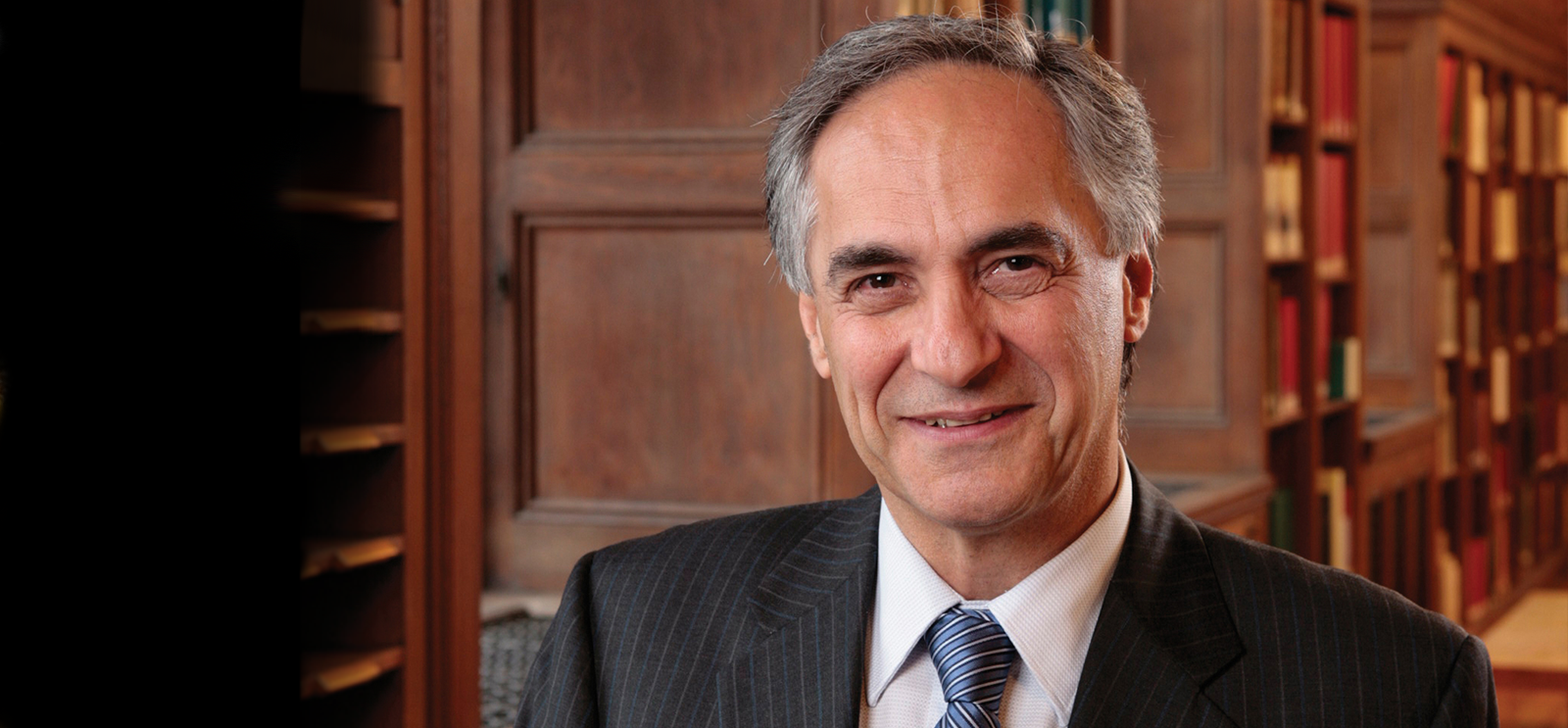
President Robert J. Zimmer. (Photography by Jason Smith)
“Universities cannot be viewed as a sanctuary for comfort but rather as a crucible for confronting ideas,” writes president Robert J. Zimmer.
Free speech is at risk at the very institution where it should be assured: the university. Invited speakers are disinvited because a segment of a university community deems them offensive, while other orators are shouted down for similar reasons. Demands are made to eliminate readings that might make some students uncomfortable. Individuals are forced to apologize for expressing views that conflict with prevailing perceptions. In many cases, these efforts have been supported by university administrators.
Yet what is the value of a university education without encountering, reflecting on, and debating ideas that differ from the ones that students brought with them to college? The purpose of a university education is to provide the critical pathway by which students can fulfill their potential, change the trajectory of their families, and build healthier and more inclusive societies. Students learn not only through the acquisition of specific knowledge but also through the attainment of intellectual skills that serve them their entire life. Students come to appreciate context, trade-offs, and data. They master how to recognize complexity, to argue effectively for their positions, and to reconsider and challenge their own beliefs.
Students discover, too, that seemingly straightforward phenomena can have complicated cultural, historical, and situational contexts that are critical to understanding their meaning. They realize that actions inevitably have multiple implications and that many decisions involve not simply choosing between “good” or “bad” but evaluating a set of consequences and uncertainties, both desired and undesired.
Students grasp the complexity of collecting, analyzing, interpreting, and deriving meaning from evidence of multiple forms. They learn to imagine alternatives, to test their hypotheses, and to question the accepted wisdom. A good education gives students the intellectual skills and approaches essential to success in much of human endeavor.
One word summarizes the process by which universities impart these skills: questioning. Productive and informed questioning involves challenging assumptions, arguments, and conclusions. It calls for multiple and diverse perspectives and listening to the views of others. It requires understanding the power and limitations of arguments. More fundamentally, the process of questioning demands an ability to rethink one’s own assumptions, often the most difficult task of all.
Essential to this process is an environment that promotes free expression and the open exchange of ideas, ensuring that difficult questions are asked and that diverse and challenging perspectives are considered. This underscores the importance of diversity among students, faculty, and visitors—diversity of background, belief, and experience. Without this, students’ experience becomes a weak imitation of a true education, and the value of that education is seriously diminished.
Free expression and the unfettered exchange of ideas do not always come naturally. Many people value the right to express their own ideas but are less committed to granting that right to others.
Over the years, universities have come under attack from a range of groups, both external and internal, that demand the silencing of speakers, faculty, students, and visitors. The attack is sometimes driven by a desire of an individual or group not to have its authority questioned. Other times it derives from a group’s moral certainty that its particular values, beliefs, or approaches are the only correct ones and that others should adhere to the group’s views. Some assert that universities should be refuges from intellectual discomfort and that their own discomfort with conflicting and challenging views should override the value of free and open discourse.
We have seen efforts to suppress discussion of Charles Darwin’s work, to insist upon particular political perspectives during the McCarthy era, to impose exclusionary acts of racial and religious discrimination, and to demand compliance with various forms of “moral” behavior. The silencing being advocated today is equally as problematic. Every attempt to legitimize silencing creates justification for others to restrain speech that they do not like in the future.
Universities should be clear about their core educational mission—to provide students with the most enriching education possible. We cannot shortchange our students. This means that questioning and challenge must flourish.
Universities cannot be viewed as a sanctuary for comfort but rather as a crucible for confronting ideas and thereby learning to make informed judgments in complex environments. Having one’s assumptions challenged and experiencing the discomfort that sometimes accompanies this process are intrinsic parts of an excellent education. Only then will students develop the skills necessary to build their own futures and contribute to society.
This column originally appeared in the Wall Street Journal on August 26, 2016.
